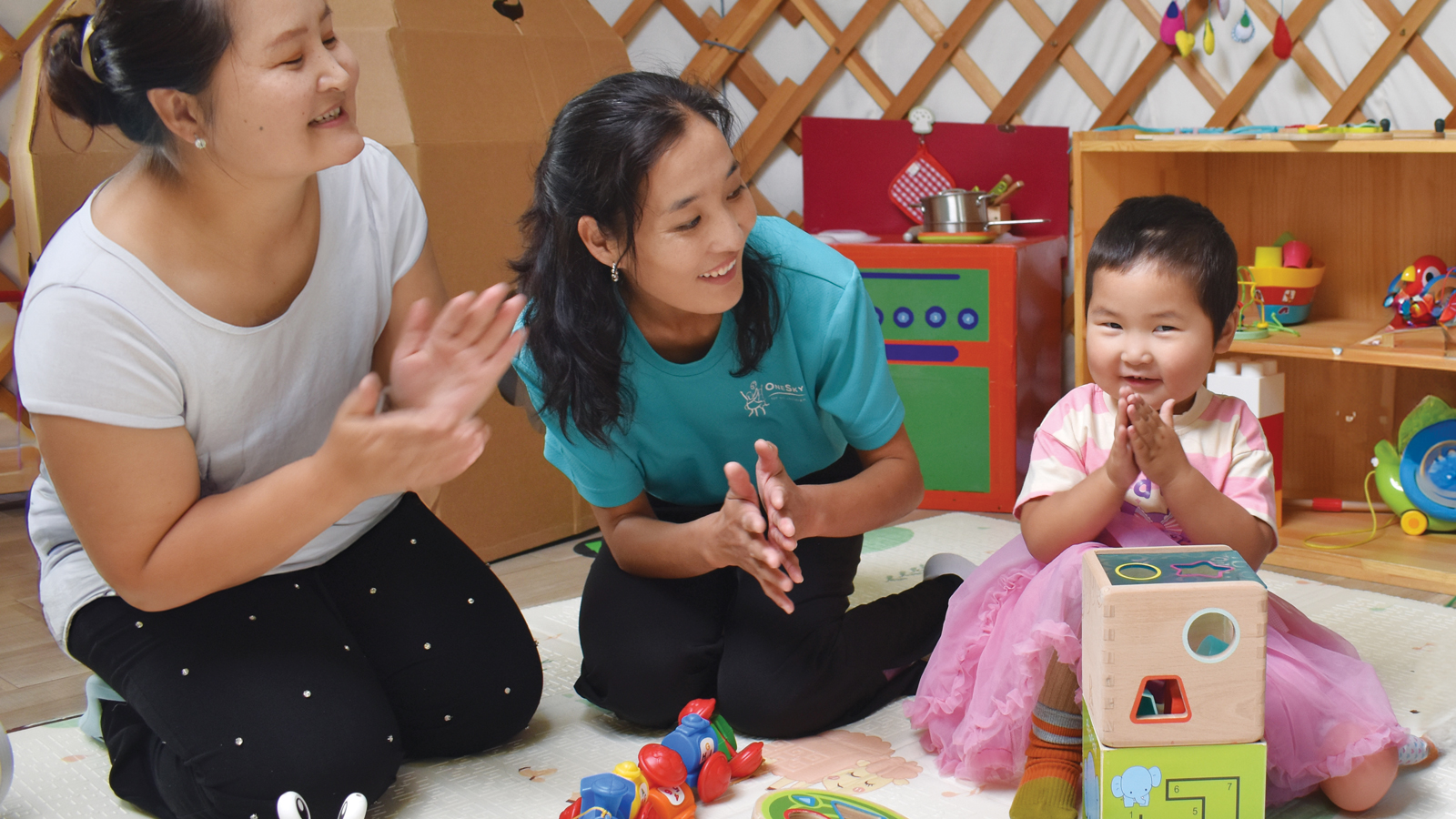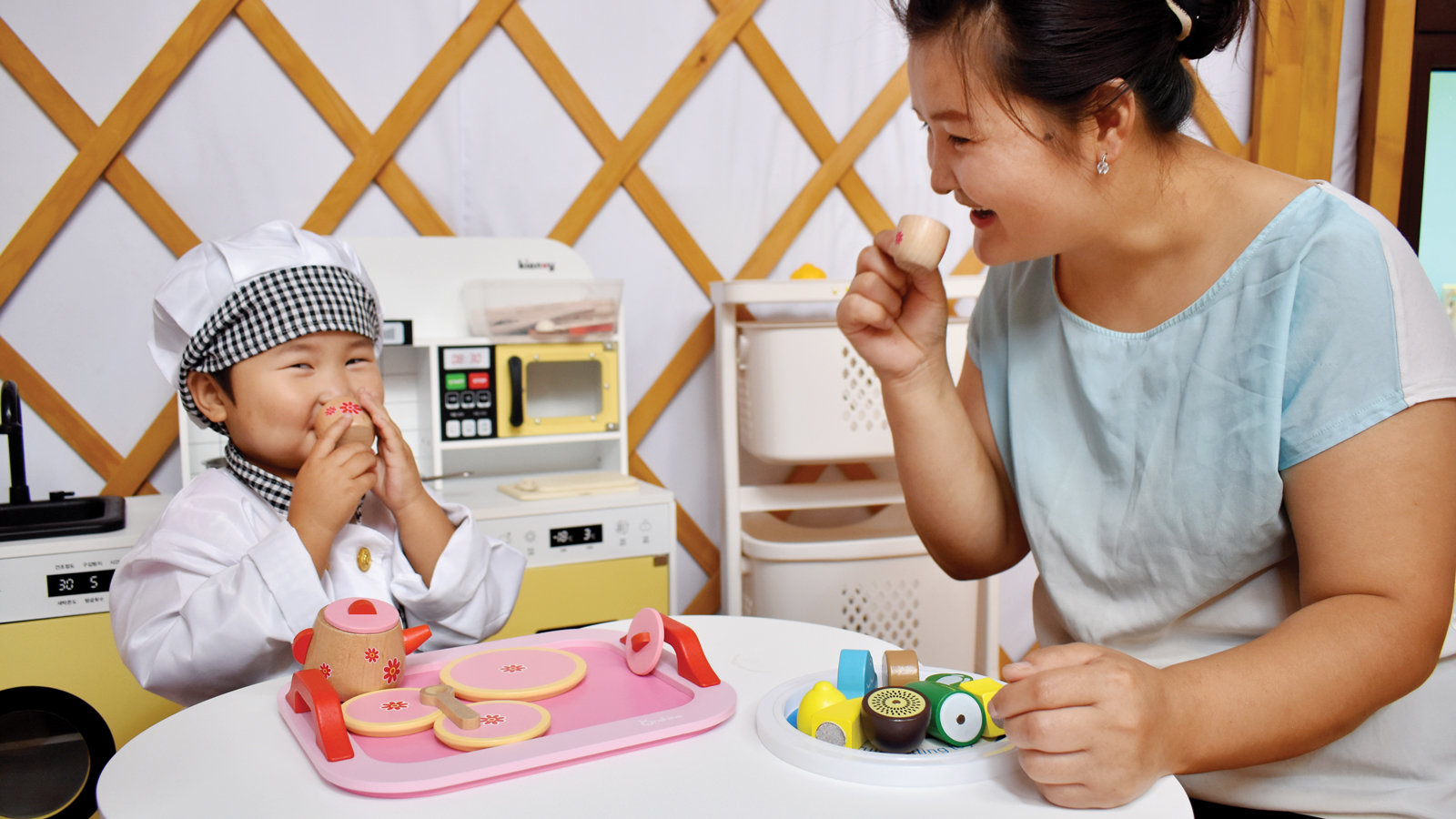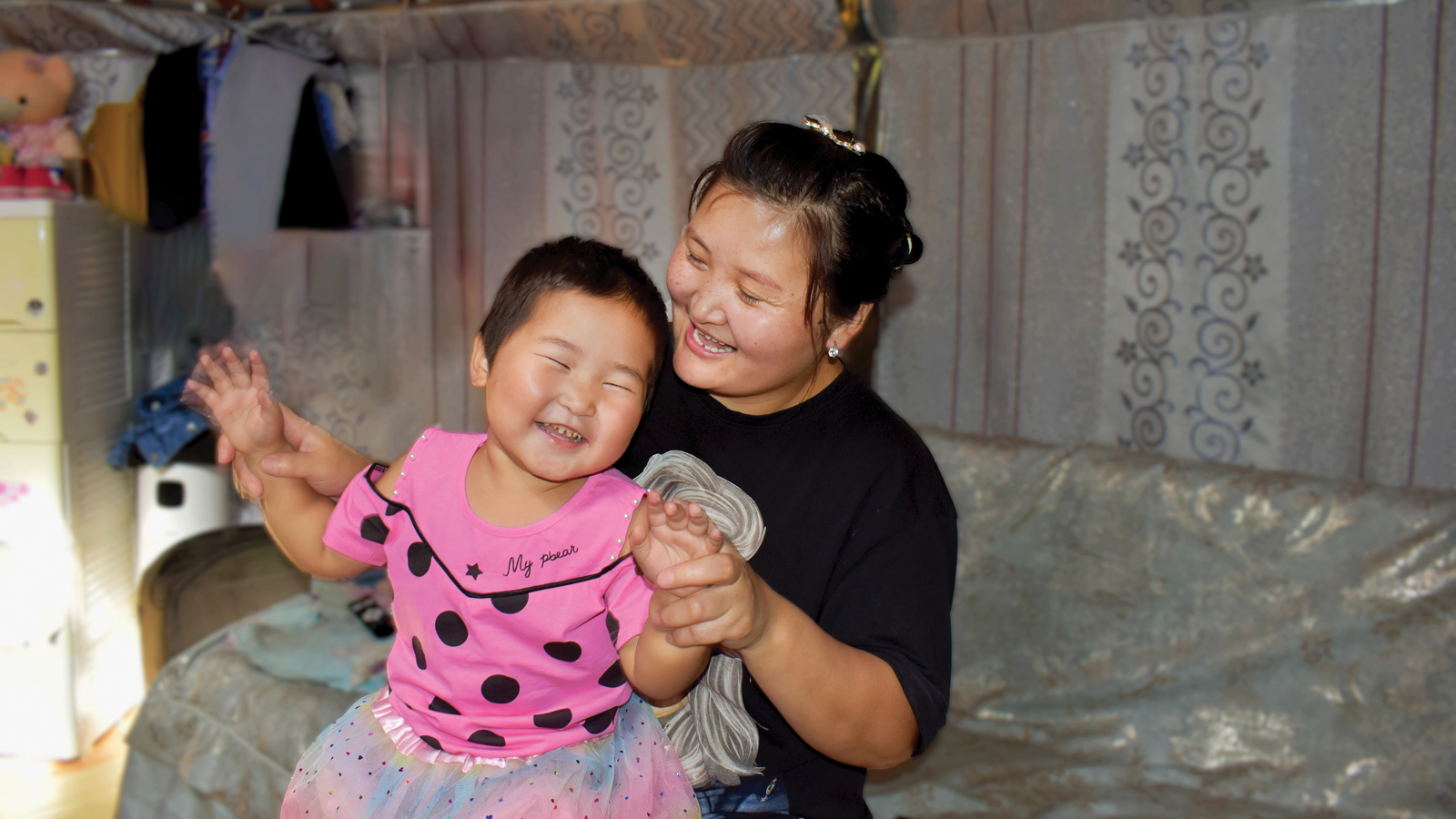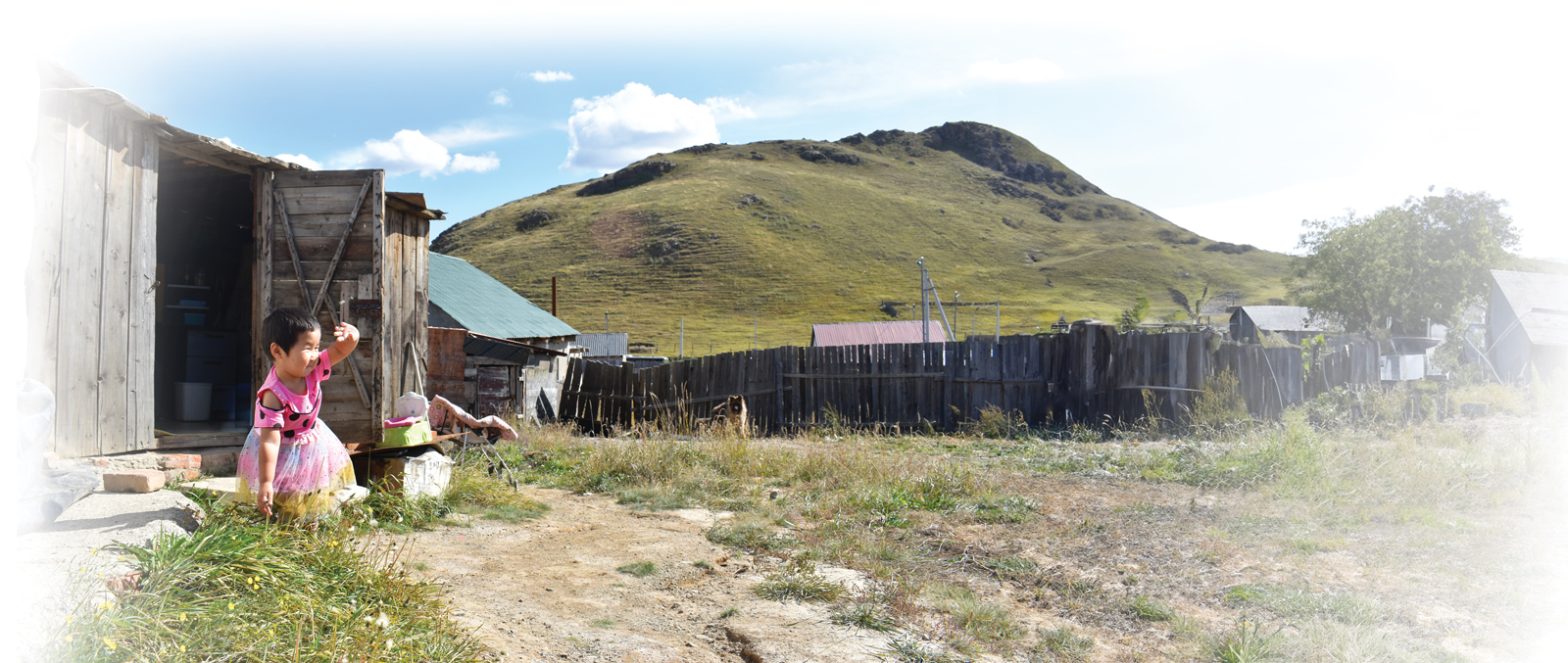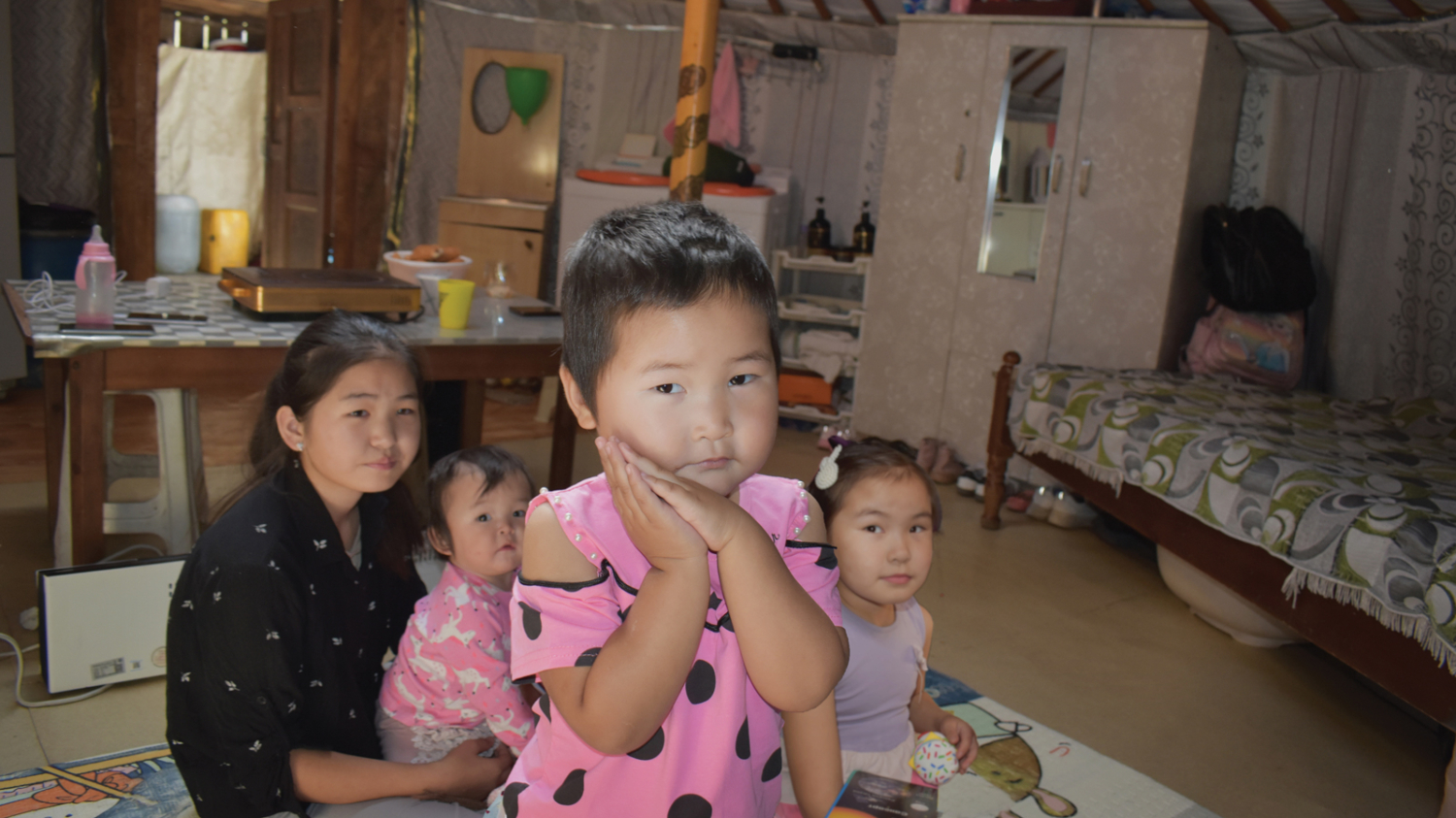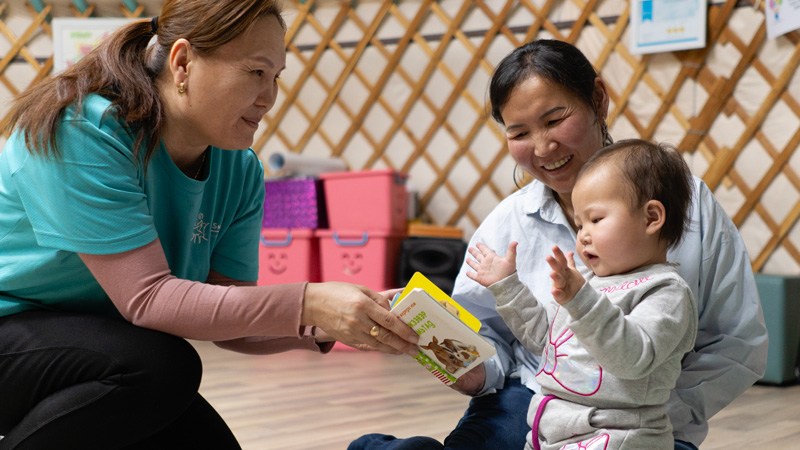Shaping Dagina’s Future: How Nurturing Care Helps Children Thrive Amid Global Challenges
Every child is shaped by the world around them.
Global challenges like climate change, poverty and gender inequity have impacts on young children that will affect the trajectory of their entire lives. Caregivers, homes, communities and the natural environments children are born into all have a huge influence on their well-being and who they become.
Three-year-old Dagina and her family live in a yurt in the ger district on the outskirts of Ulaanbaatar. She and her baby sister spend most of their time inside the cramped home with their mother, Jagaa, especially during the long winters when the temperature can plummet to -20F/-29C. Dagina’s older sisters who are nine and eleven walk 30 minutes to the closest bus stop to ride to and from school, even in the harshest winter months. Jagaa is always worried about them. “Their school ends at 6 p.m.,” she says. “They usually walk home in the dark, and there are no lights on the streets here.”

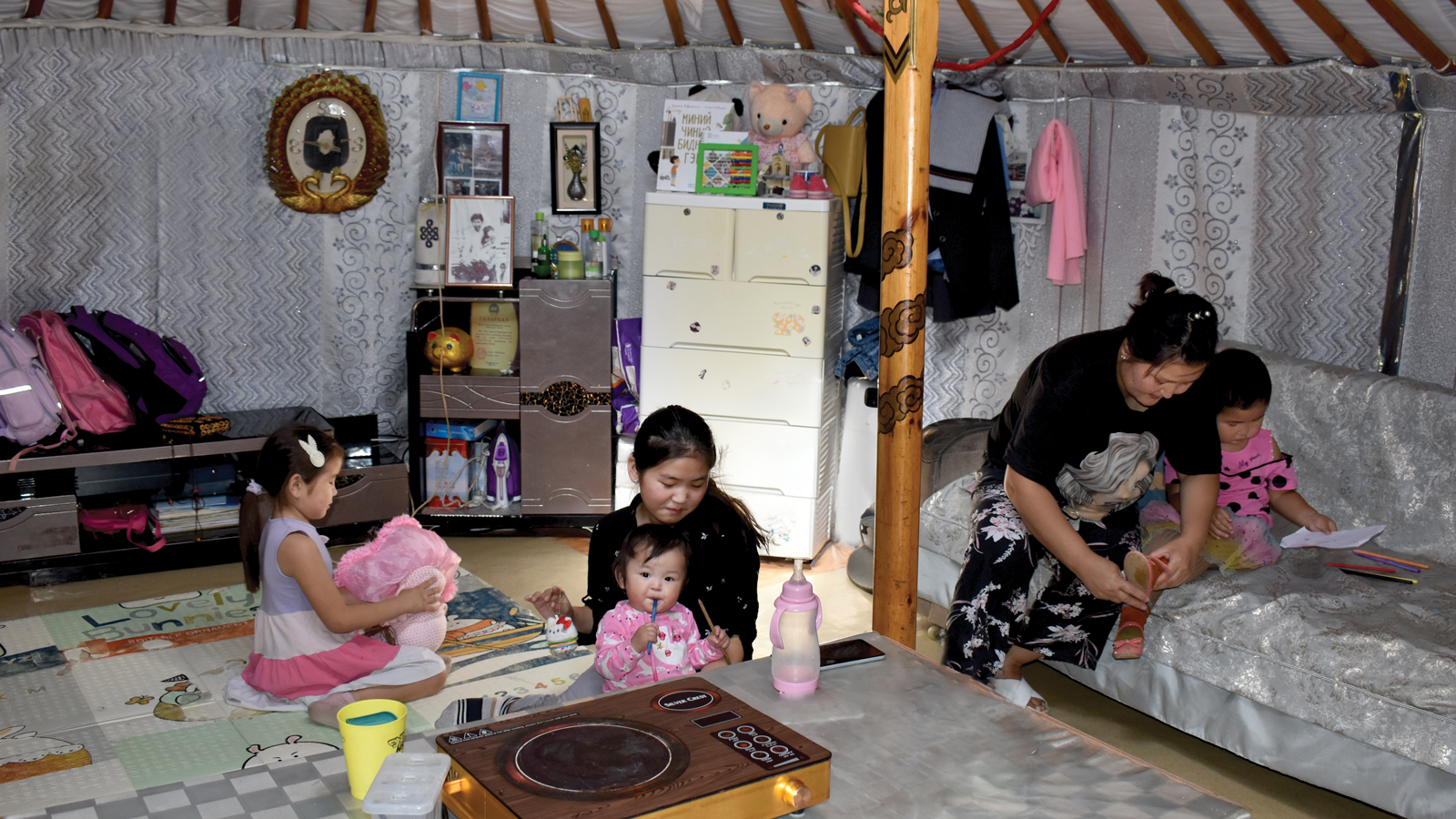
Dagina’s family recently migrated from Darkhan to Ulaanbaatar, hoping to find economic security and more opportunities in the capital city. They settled on the city’s periphery where more than 60% of Ulaanbaatar’s population now live, but struggle to gain residency. Being labeled “temporary citizens,” like over 840,000 others living in the area, limits their access to fundamental services, including early care and education for their youngest children.
Parents who are dealing with chronic stress due to harsh living conditions, low wages and lack of the basic services that provide human dignity can find it extremely difficult to consistently give their children the focused, responsive care that they need.
Fortunately, the OneSky Family Center is there to help Dagina’s family.
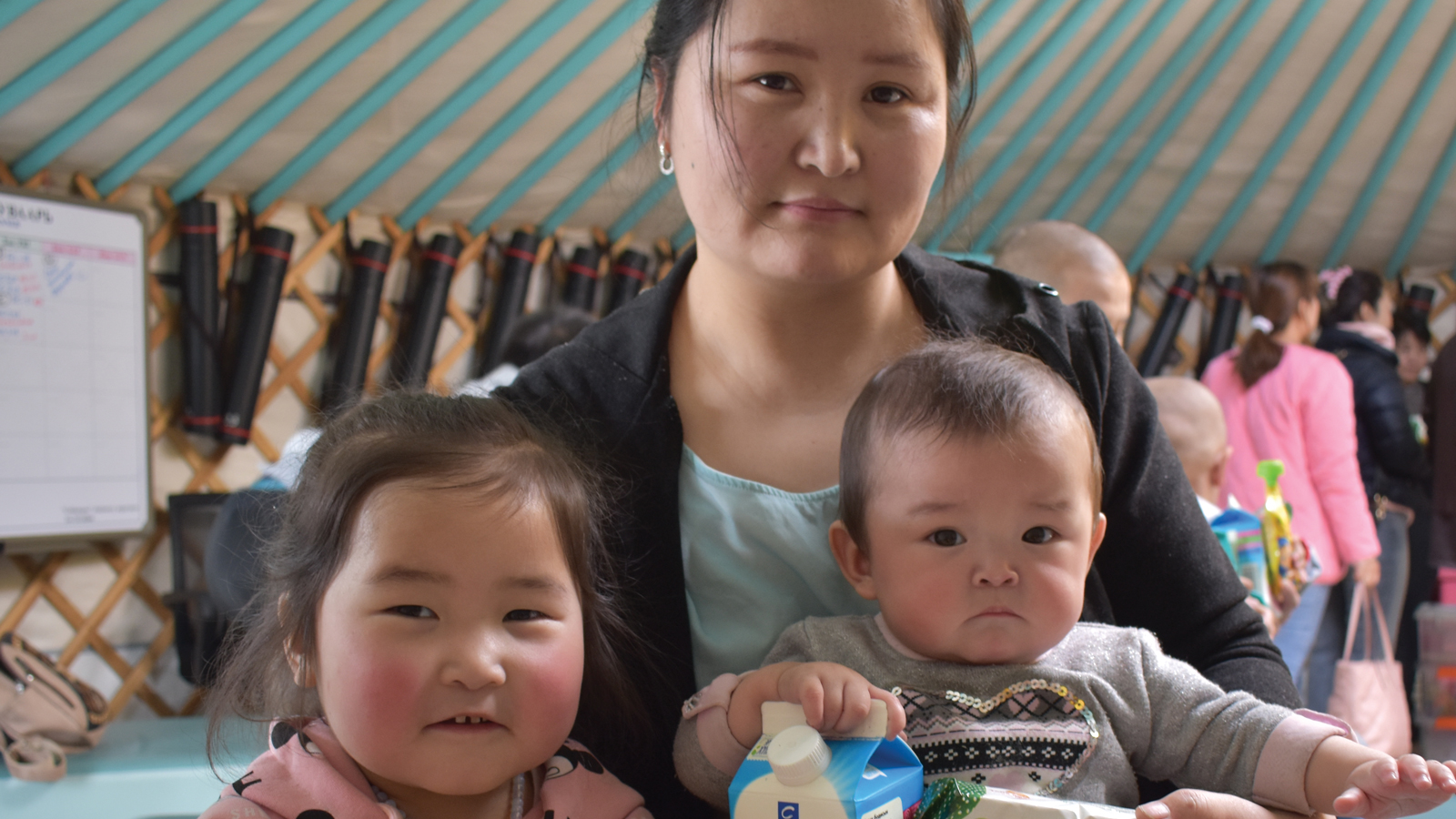
“There is a traditional Mongolian expression,” Jagaa explains, “‘Keep your hardness on the outside and your love within.’ If I hadn’t joined the OneSky Family Skills training, I would have continued to act just like my parents did with me—never showing affection, rarely speaking to me and being embarrassed to express love and attachment.”
“Before being trained at the OneSky Family Center, I was angry and frustrated with my daughters when they asked questions, or wanted to talk and play. Even today, many parents don’t think it’s important to listen or respond to their young children. With training, I see that Dagina was angry all the time because she was copying me.”
Jagaa’s new skills and shifting behavior have changed the dynamic within their home. She focuses on the girls as they draw, dance and play. She listens and responds when they ask questions. “Dagina is more open with me now,” Jagaa says. “She isn’t afraid to express her thoughts and feelings. She even shares more with her sisters. What I’ve learned has helped our whole family.”
